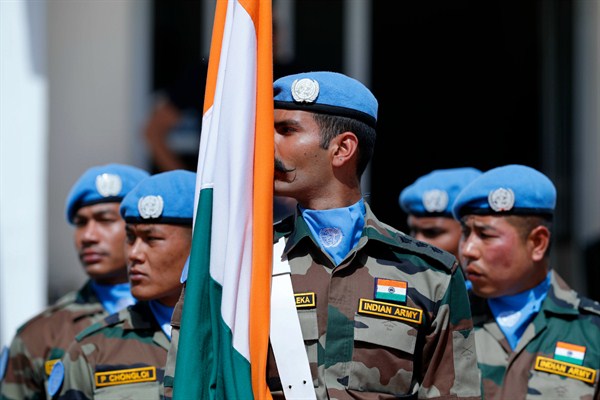Is it time to stop panicking about peacekeeping?
Discussions of United Nations peace operations are always tinged with a sense of crisis. Blue-helmet operations have been through a rough patch in recent years, struggling to stay on top of crises from the Central African Republic and South Sudan to the Golan Heights. As I noted last week, many experts fear that U.N. forces in trouble spots like Mali have stumbled into counterterrorist and stabilization missions that they cannot sustain. This is just one aspect of a broader malaise. The U.N. has endured a long series of revelations about indiscipline, corruption and cowardice among peacekeepers.
Next week, U.N. Secretary-General Antonio Guterres will gather leaders on the margins of the General Assembly in New York to discuss how to fix this situation. He has been blunt about peacekeeping’s flaws. As a former U.N. refugee chief, he has seen blue-helmet missions up close. He does not seem to have been impressed. “Peacekeepers are often under-equipped, under-prepared and unready for the dangerous environments in which they now operate,” he told the Security Council in March.

